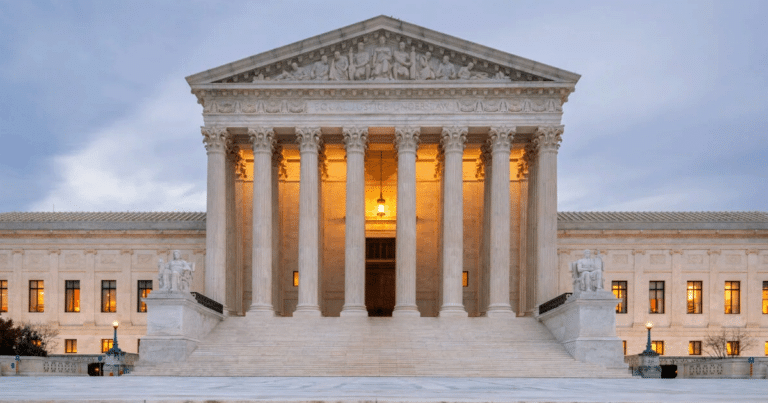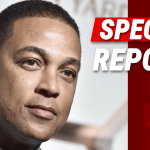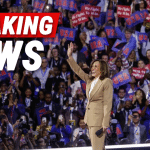
Election integrity has always been a hot topic, but it’s getting even hotter as Arizona finds itself at the center of a legal battle that could have nationwide implications. At stake is a law that could protect elections for generations to come. Seems straightforward, right? Not so fast.
Democrats have been fighting tooth and nail to stop states from implementing election safeguards. Almost as if they want election fraud to happen, huh?
Isn’t it just common sense to ensure election integrity? Well, according to Republican Attorneys General Kris Kobach of Kansas and Patrick Morrisey of West Virginia, it’s not just common sense—it’s a matter of preserving democracy. They, along with 22 other states, have filed an amicus brief urging the Supreme Court to halt a lower court ruling that would allow people to register to vote in Arizona without proving their citizenship.
From Washington Examiner:
Republican Attorneys General Kris Kobach of Kansas and Patrick Morrisey of West Virginia filed an amicus brief joined by 22 states asking the Supreme Court to halt a lower court ruling that would force Arizona to allow people to register to vote without having to prove their U.S. citizenship…“It’s really very simple: you should not be allowed to vote if you’re not a United States citizen, and having proof of your citizenship is vital in making sure we conduct free, safe and lawful elections.”
Safeguarding Democracy or Disenfranchising Voters?
The brief, which supports the Republican National Committee’s emergency petition, comes in response to a recent decision by the U.S. Court of Appeals for the 9th Circuit. This decision blocked Arizona from enforcing its law requiring documentary proof of citizenship to participate in federal elections.
According to Morrisey, “It’s really very simple: you should not be allowed to vote if you’re not a United States citizen, and having proof of your citizenship is vital in making sure we conduct free, safe, and lawful elections.”
But, of course, not everyone sees it that way. Civil rights groups and the Biden Justice Department argue that the law could disenfranchise thousands of voters who have already registered using a federal form. They claim that this requirement is unnecessary and burdensome, potentially blocking legitimate voters from exercising their rights.
The stakes are high, especially in a swing state like Arizona, where former President Donald Trump claimed voter fraud cost him the 2020 election. While those claims were strongly refuted by the left, the controversy has left a lasting impact. There are ongoing debates about election security and the balance between preventing fraud and ensuring voter access.
The Legal Tug-of-War
The legal battle now hinges on whether the Supreme Court will uphold Arizona’s law or side with the 9th Circuit’s ruling. The justices are being asked to consider whether their 2013 decision, which struck down a similar Arizona law, should be revisited. Back then, Justice Antonin Scalia wrote that the National Voter Registration Act preempted Arizona’s requirement for proof of citizenship, with Justices Clarence Thomas and Samuel Alito dissenting. Today, Thomas and Alito are part of the Court’s 6-3 conservative majority, and their earlier dissent might now carry more weight.
The Republican attorneys general are arguing that the 2013 decision should not be read to limit states’ ability to treat voter registration as a voting qualification. They contend that upholding Arizona’s law would not necessarily require overturning the 2013 ruling, although they wouldn’t mind if the justices decided to do just that.
Key Takeaways:
- Republican attorneys general from 22 states are urging the Supreme Court to uphold Arizona’s voter registration law.
- Civil rights groups and the Biden Justice Department are challenging the law, which requires proof of citizenship.
- The Supreme Court’s decision could have major implications for election laws across the country.
Source: Washington Examiner


